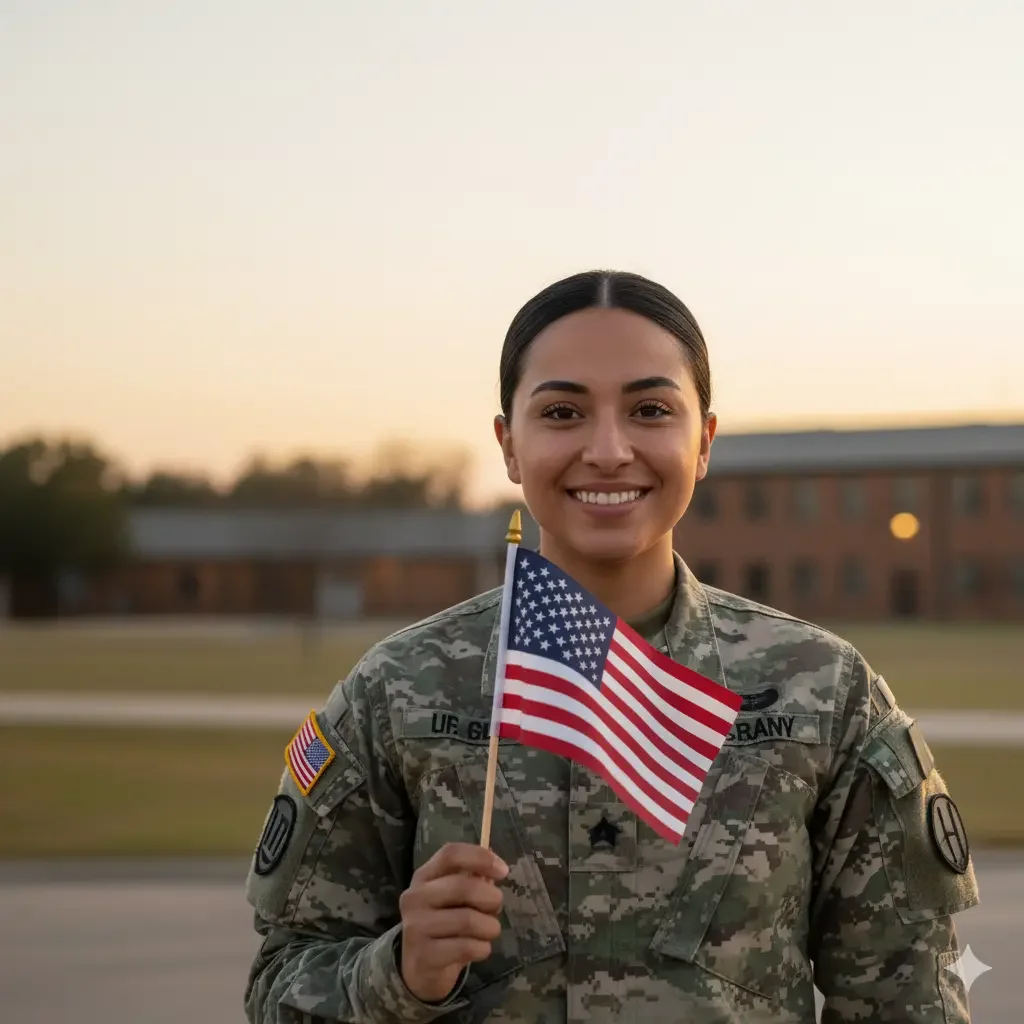What is Military Parole in Place?
/What is Military Parole in Place?
Under current U.S. immigration law, spouses, children, and parents of those serving on active duty in the U.S. Armed Forces, in the Selected Reserve of the Ready Reserve, or who previously served in the U.S. Armed Forces may apply for parole in place. Although it is most frequently used to permit an individual who is outside the United States to come into U.S. territory, parole may also be granted to individuals who are already physically present in the U.S. without inspection or admission.
This means that if undocumented spouses, children, or parents of a qualifying military member entered the U.S. without inspection or failed to arrive at a designated port of entry, they may still receive "parole."
Military Parole in Place
Expert legal guidance for military-connected immigration cases
Who Qualifies?
You may qualify if you are:
- The spouse of a qualifying military member
- An unmarried child (under 21) of a qualifying military member
- A parent of a qualifying military member (if the military member is 21+)
Your military family member must be:
- Serving on active duty in the U.S. Armed Forces
- In the Selected Reserve of the Ready Reserve
- Previously served in the U.S. Armed Forces or Selected Reserve
The Stress and Anxiety Requirement
Congress has recognized that veterans who have served and sacrificed for our nation can face stress and anxiety because of the immigration status of their family members in the United States.
To qualify for military parole in place, the qualifying military member must establish that they face stress and anxiety because of the undocumented status of their spouse, child, or parent. This requirement is case-specific, and our Seattle immigration attorneys help clients document and present compelling evidence of this hardship.
Important: Parole in place is discretionary and determined on a case-by-case basis. Each application requires careful preparation and strong documentation.
Major Benefits
Avoid Consular Processing: Once approved with an approved family petition (I-130), you can adjust status without leaving the U.S. This means avoiding travel to your home country for consular processing.
Skip the Provisional Waiver: Military parole in place bypasses the traditional provisional waiver requirement, saving time and reducing legal complexity.
Faster Path to Green Card: By keeping your family member in the U.S. throughout the process, military parole in place creates a streamlined path to permanent residency and eventual citizenship.
Legal Status Protection: Once parole in place is granted, your family member has legal status while awaiting their green card approval—allowing them to work legally and travel with fewer restrictions.
How L.I.H. Law Can Help
Attorney Lesley Irizarry-Hougan has over 20 years of exclusive immigration law experience, including extensive work with military-connected cases. We guide military families through:
- Initial eligibility assessment
- Stress and anxiety documentation
- I-130 family petition preparation
- Military parole in place application
- Status adjustment process
- Green card and naturalization applications
Our fully bilingual team understands the unique needs of military families and works with compassion and expertise to help you achieve legal status.
$100 OFF Your First Consultation
For veterans and active military service members
Valid through November 30, 2025
Call (206) 838-7628 Schedule ConsultationFrequently Asked Questions
Processing times vary, but military parole cases typically take 6-12 months from application to approval. However, this timeline can be affected by USCIS processing delays and the complexity of your specific case.
In many cases, yes. Once your military parole in place is approved and you have an approved I-130 family petition, you can apply for an Employment Authorization Document (EAD), which allows you to legally work in the United States.
No—one of the key benefits is that you remain in the U.S. throughout the entire process. You do not need to travel to your home country for consular processing, which is what makes this benefit so valuable.
After approval, you'll file Form I-485 (Application to Register Permanent Residence or Adjust Status) to adjust your status to permanent resident. This is the next step toward obtaining your green card.
Yes, if the military service member is 21 or older. Parents of qualifying military service members can apply for military parole in place and, if approved, can follow the same pathway to permanent residency.
You'll typically need: valid identification, birth certificate, marriage/civil partnership certificate, military service documentation, evidence of your relationship, evidence of stress/anxiety from the military member, police records (if any), and proof of U.S. residence. Our team will provide a complete checklist during your consultation.
Military parole in place is discretionary, which means USCIS reviews each case individually and approval is not guaranteed. However, having strong documentation combined with a well-prepared application significantly improves your chances. Working with an experienced immigration attorney is crucial.
Ready to Get Started?
L.I.H. Law is a trusted immigration law firm with our office conveniently located in Seattle, near the Seattle Space Needle (2nd Ave and Denny Way).
Our well-respected attorney exclusively practices immigration law, covering diverse topics: asylum, deferred action for childhood arrivals (DACA), fiancé visas (K-1 visas), green cards, immigration status for victims of domestic violence or other crimes, naturalization applications, and more.
The immigration attorney and professional staff at L.I.H. Law are dedicated to providing the right solutions to meet our clients' immigration needs. Our entire staff is fluent in Spanish and has served clientele from around the world.
Supporting our local immigration community is important to us. Our immigration lawyer and staff are active in volunteering for various community events and organizations, and conducting pro-bono work.
Schedule Your Consultation
Consultation Options: Phone, Text, or WhatsApp Video
Call (206) 838-7628 Contact Us
